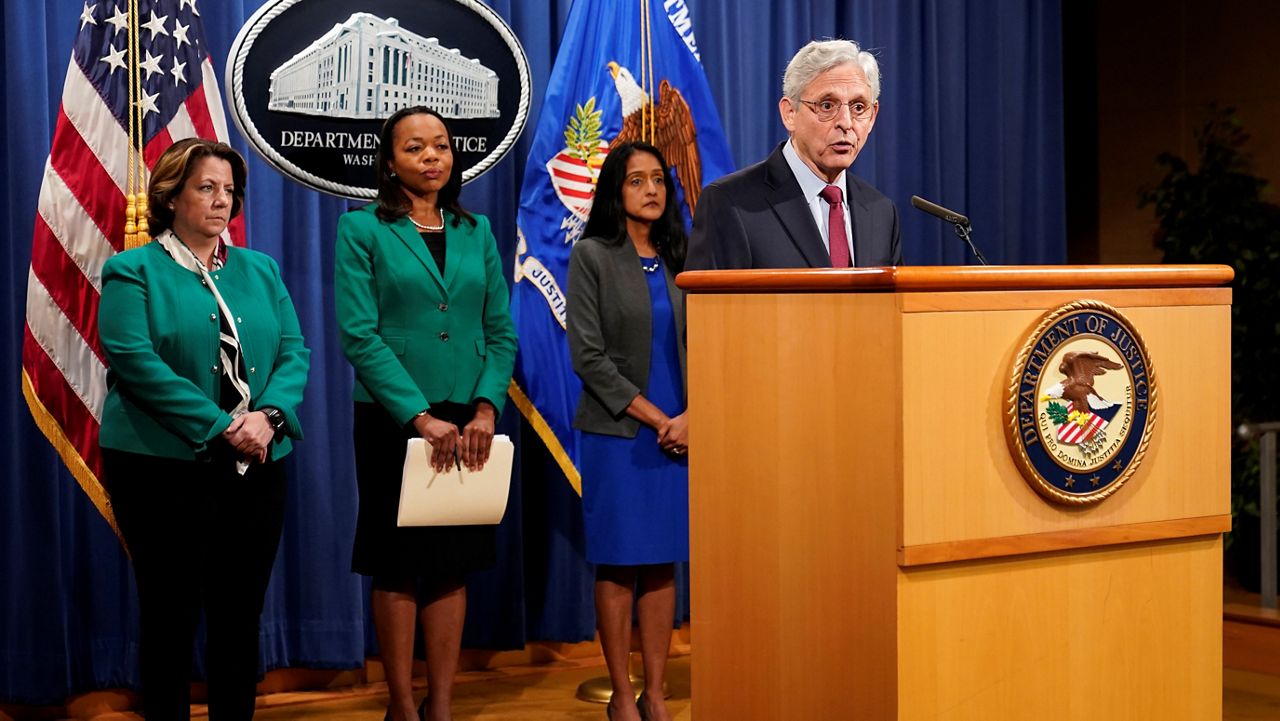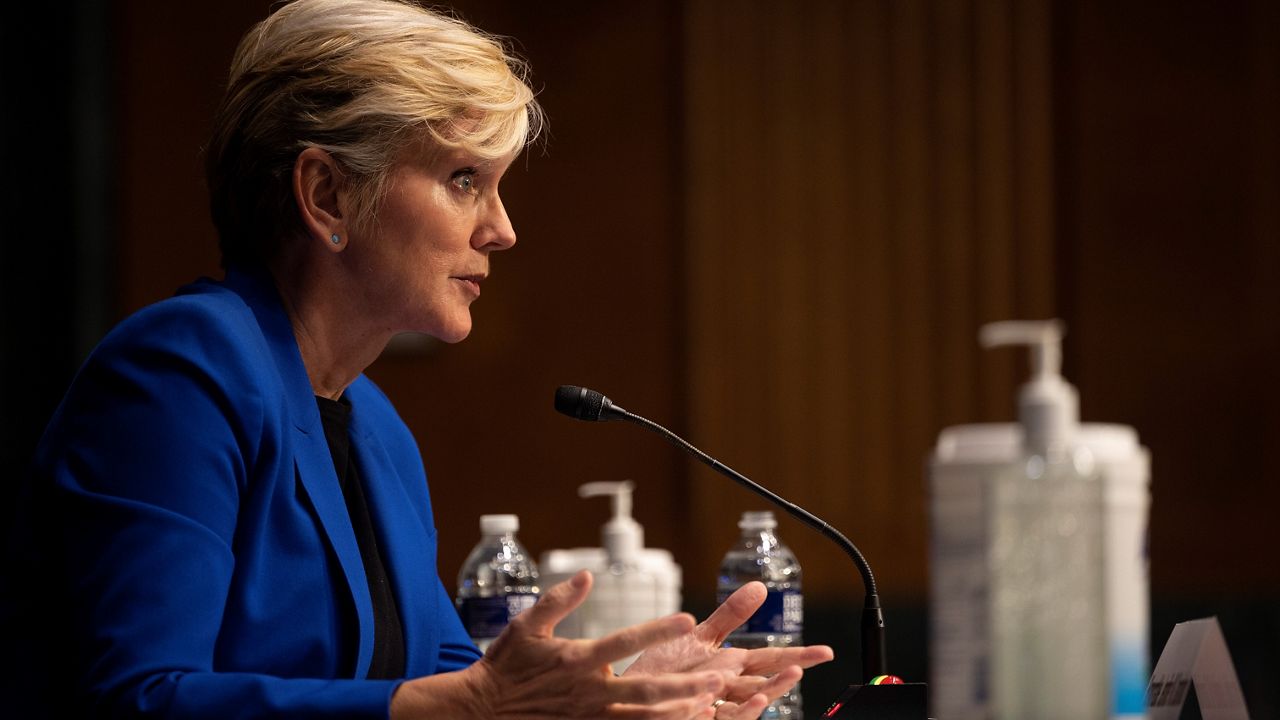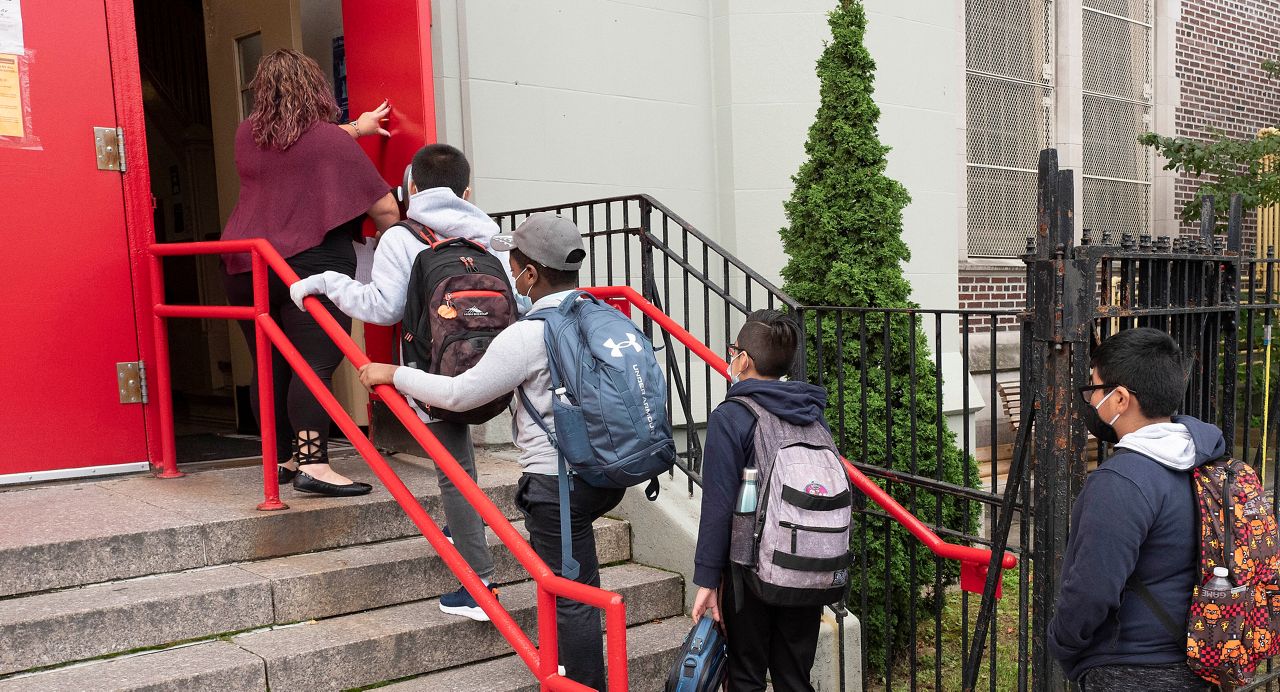The Justice Department is suing the state of Georgia over its sweeping new voting law, Attorney General Merrick Garland announced Friday, saying in a press conference that the state restrictions violated the Voting Rights Act and were "enacted with the purpose of denying or abridging the right of Black Georgians to vote."
What You Need To Know
- The Justice Department is suing the state of Georgia over its sweeping new voting law, Attorney General Merrick Garland announced Friday
- Garland and Assistant Attorney General Kristen Clarke say the law violates the Voting Rights Act and was aimed at disenfranchising Black voters
- The Justice Department also issued a memo to FBI and U.S. prosecutors Friday announcing a task force to investigate "menacing and violent threats" against election officials across the country
- Point 4 goes here
"Where we believe the civil rights of Americans have been violated, we will not hesitate to act," Garland said.
Garland said the Georgia lawsuit was the "first of many steps" the Justice Department will take "to ensure that all eligible voters can cast a vote, that all lawful votes are counted and that every voter has access to accurate information."
Kristen Clarke, assistant attorney general for civil rights, said S.B. 202, signed by Republican Gov. Brian Kemp in March, was passed with a "discriminatory purpose in violation of the Voting Rights Act." The Republican-led Legislature passed the bill in a "rushed process" that didn't follow normal procedure, Clarke said, adding that such changes "were not made in a vacuum."
"The Justice Department will not stand idly by in the face of unlawful attempts to restrict access to the ballot," Clarke told reporters.
In a series of tweets, Kemp said the lawsuit was "born out of the lies and misinformation the Biden administration has pushed" about the law.
"Joe Biden, Stacey Abrams, and their allies tried to force an unconstitutional elections power grab through Congress - and failed," Kemp wrote. "Now, they are weaponizing the U.S. Department of Justice to carry out their far-left agenda that undermines election integrity and empowers federal government overreach in our democracy."
The Justice Department also issued a memo to FBI and U.S. prosecutors Friday announcing a task force to investigate "menacing and violent threats" against election officials across the country — ranging from state administrators to local poll workers and volunteers. Such threats have spiked "dramatically" in recent years, Garland said.
News of the lawsuit comes after Garland announced earlier this month that the Justice Department was enacting a series of new mesaures to shield voting rights, and as part of that effort would be reviewing both new and current voting laws across the country to determine whether they discriminate against Black voters or other people of color.
"The Civil Rights Division continues to analyze other state laws that have been passed, and we are following the progress of legislative proposals," Garland said Friday.
“The rights of all eligible citizens to vote are the central pillars of our democracy," he continued. "They are the rights from which all other rights ultimately flow.”
The Georgia law added a photo ID requirement for voting absentee by mail, cut the amount of time people have to request an absentee ballot and limited where drop boxes could be placed and when they could be accessed. It also banned people from handing out food or water to voters waiting in line and allowed the Republican-controlled State Election Board to remove and replace county election officials while curtailing the power of the secretary of state as Georgia’s chief elections officer.
Georgia Republicans who passed the voting legislation argue it will strengthen election security.
Critics say the law is a blatant attempt to suppress left-leaning voters after Democrats won in Georgia in the presidential election and two U.S. Senate races, and a reaction to former President Donald Trump’s false claims about election fraud.
This article was updated with additional information.








